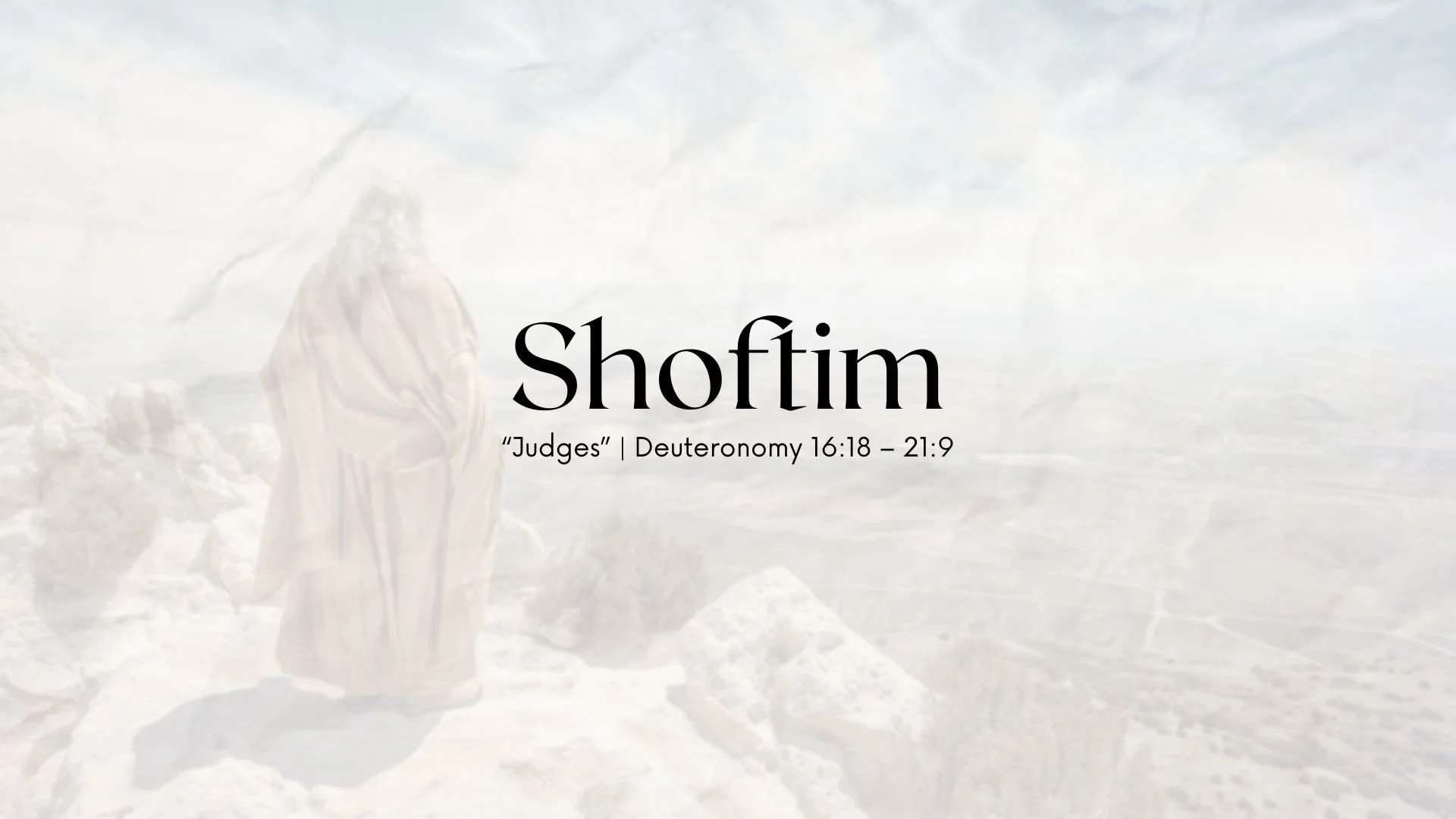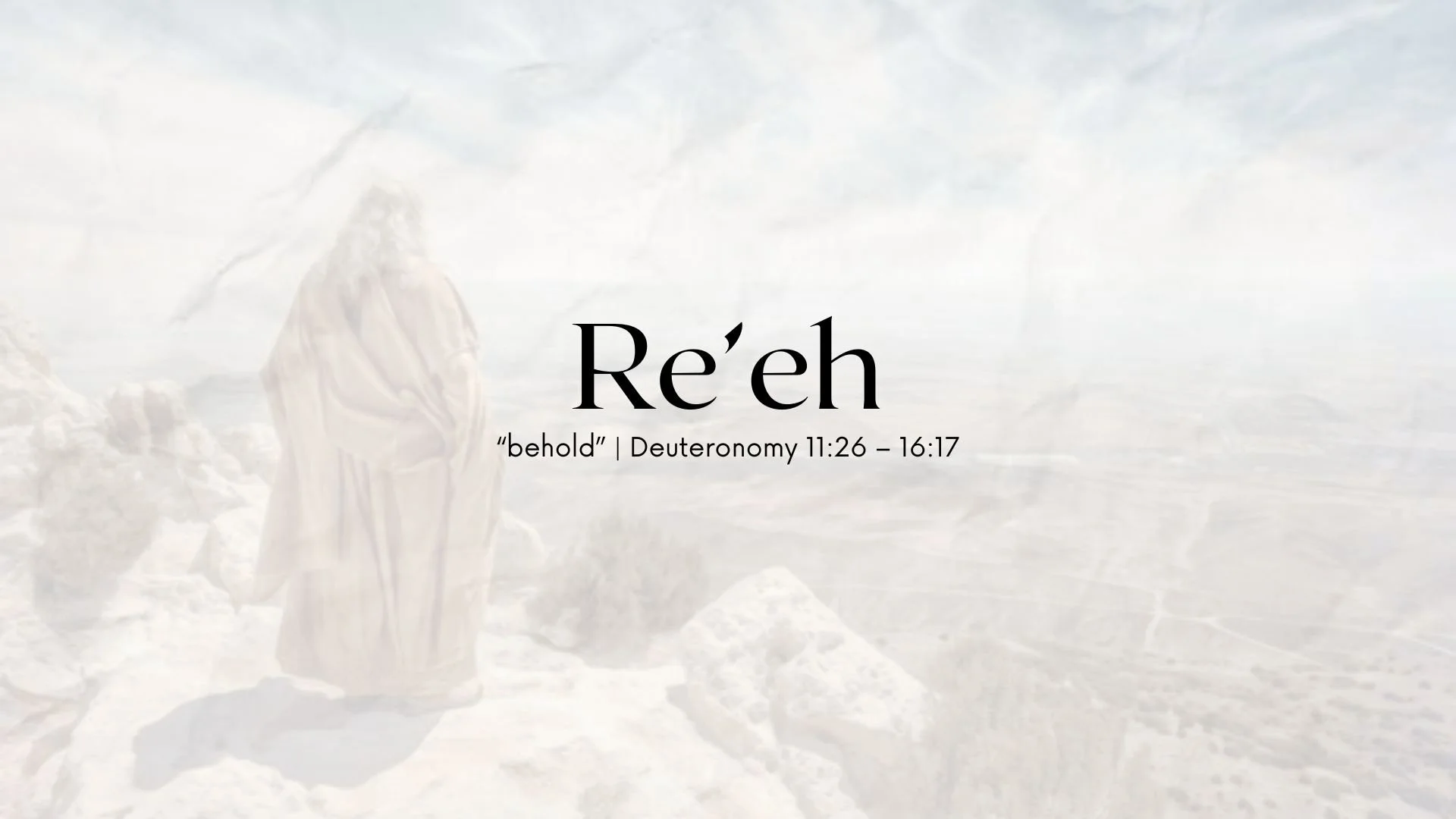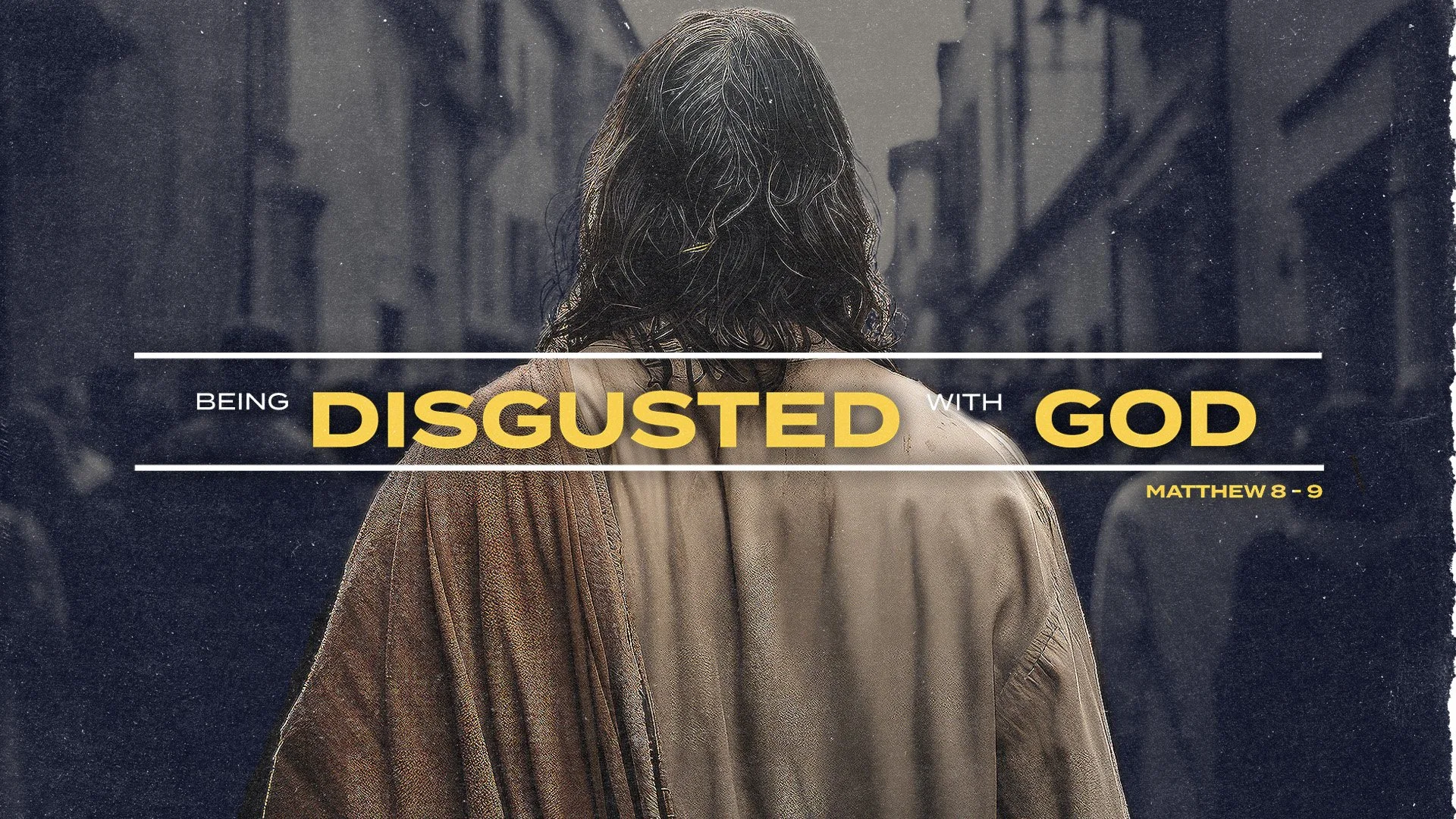Vezot ha’Bracha “and this is the blesing”
The Vezot ha’Bracha Torah Portion is named after the Hebrew word for “and this is the blessing”, the weekly reading is found in Deuteronomy starting in chapter 33 verse 1 and going through chapter 34 verse 12.
Day of Atonement: Why Christians and Churches Should Celebrate Yom Kippur
The Day of Atonement (Yom Kippur) is the holiest day in Scripture, pointing to Jesus as our High Priest, sacrifice, and scapegoat (Leviticus 16; Hebrews 9–10). For Christians, it is not just an Old Testament ritual but a prophetic feast revealing the cross, the seriousness of sin, and the power of Christ’s atonement. Discover why churches today should celebrate Yom Kippur as a holy rehearsal of repentance, renewal, and the coming return of Jesus Christ.
Harassed and Helpless
Are you feeling spiritually exhausted and burdened? Jesus saw crowds as 'harassed and helpless like sheep without a shepherd'—and His solution wasn't more religion but transformation. If your faith leaves you harassed and helpless, it's not faith—it's a fraud. What fields has God placed in YOUR life to harvest? The kingdom doesn't just rescue sheep; it transforms them into shepherds.
Ha’azinu “give ear”
The Ha’azinu Torah Portion is named after the Hebrew word for “give ear”, the weekly reading is found in Deuteronomy starting in chapter 32 verse 1 and going through verse 52.
The Feast of Trumpets: Why Christians and Churches Should Celebrate It—Past, Present, and Future
The Feast of Trumpets is more than an Old Testament holiday—it’s a prophetic call for Christians to awaken, repent, and crown Jesus as King. Rooted in Leviticus 23 and fulfilled in the return of Christ, this feast points to the final trumpet when the dead in Christ will rise. Discover why churches today should celebrate the Feast of Trumpets as a holy rehearsal for the Second Coming of Jesus.
When Demons Steal Your Testimony
Is your testimony being silenced? Demons don't need your eyes, ears, or hands—they just need your voice. Many of us aren't mute because of possession but because of permission. We let busyness gag us, shame handcuff us, and compromise tape our mouths shut. But when the King shows up, demons flee and testimonies rise! What's silencing your story today?
Vayelech “and he went”
The Vayelech Torah Portion is named after the Hebrew word for “and he went”, the weekly reading is found in Deuteronomy starting in chapter 31 verse 1 and going through verse 30.
Rejoice in Silence
Two blind men who never saw Jesus perform a single miracle still recognized Him as the Messiah. Meanwhile, many with perfect vision completely missed who He was. What spiritual blindness might be preventing you from experiencing the healing Jesus offers? Discover how faith opens eyes in ways physical sight never could.
Nitzavim “you are standing”
The Nitzavim Torah Portion is named after the Hebrew word for “you are standing”, the weekly reading is found in Deuteronomy starting in chapter 29 verse 10 and going through chapter 30 and verse 20.
Dying Moments Meet Living Faith
How far would you go to touch Jesus? In Matthew 9, a desperate woman crawled through crowds despite bleeding for 12 years, while a grieving father defied his religious training to seek a miracle. Their desperate faith led to extraordinary encounters. The truth? You can have as much Jesus as you want, but never more than you pursue. Are you content being a spectator, or are you reaching for the hem of His garment?
Ki Tavo “when you come”
Ki Tavo are the Hebrew word for “when you come” or “when you enter”, and is the name for the weekly Torah Portion reading for the Deuteronomy starting in chapter 26 verse 1 and going through chapter 29 and verse 9.
Mourning What God Celebrates
Are you mourning what God is celebrating? Jesus compared His presence to a wedding feast—a time for joy, not fasting! When God shows up, everything changes. The old wineskins of religion can't contain the new wine of His Spirit. What old patterns are keeping you from experiencing the fullness of His kingdom?
When God’s Grace Offends God’s People
When Jesus said 'Follow me,' Matthew left everything behind without hesitation. What would you leave behind to follow Jesus today? At the kingdom table, Jesus honors those society rejects. Are you creating barriers or building bridges to His presence? Discover what it truly means to choose mercy over sacrifice and find your place at the table where everyone belongs.
Finding Your Place at the Kingdom Table
Discover the radical call of Matthew in Matthew 9:9–13. Learn why Jesus dined with sinners, challenged the Pharisees, and redefined the Kingdom table.
Ki Tetze “when you go”
Ki Tetze are the Hebrew word for “when you go” and is the name for the weekly Torah Portion reading for the Deuteronomy starting in chapter 21 verse 10 and going through chapter 25 and verse 19.
Shoftim “Judges”
Shoftim is the Hebrew word for “Judges”, this is the name for the weekly Torah Portion reading for the Deuteronomy starting in chapter 16 verse 18 and going through chapter 21 and verse 9.
Forgiving Sins or Healing Flesh
In Matthew 9:1-8, Jesus returns to Capernaum and heals a paralyzed man, but not before addressing his sins. This story highlights the importance of true friendship, as the man's friends brought him to Jesus. It also shows that Jesus prioritizes spiritual healing over physical symptoms, challenging religious systems that limit God's mercy. The crowd reacts with awe, while religious leaders resist. The passage encourages us to seek both spiritual and physical healing and to bring others to Jesus for true transformation.
Re’eh “behold”
Re’eh is the Hebrew word for “behold” and is the name of the book of Deuteronomy in Hebrew, this is the name for the weekly Torah Portion reading for the Deuteronomy starting in chapter 11 verse 26 and going through chapter 16 and verse 17.
Being Disgusted With God
What if the scariest thing God could do isn't punish you, but simply leave? The Gadarenes asked Jesus to depart after He disrupted their economy, and He did—without argument. Are there areas in your life where you're subtly asking Jesus to leave? Do you want His healing without His lordship? His blessings without His presence? There is no freedom without surrender.
Ekev “because”
Ekev is the Hebrew word for “because” and is the name of the book of Deuteronomy in Hebrew, this is the name for the weekly Torah Portion reading for the Deuteronomy starting in chapter 7 verse 12 and going through chapter 11 and verse 25.




















